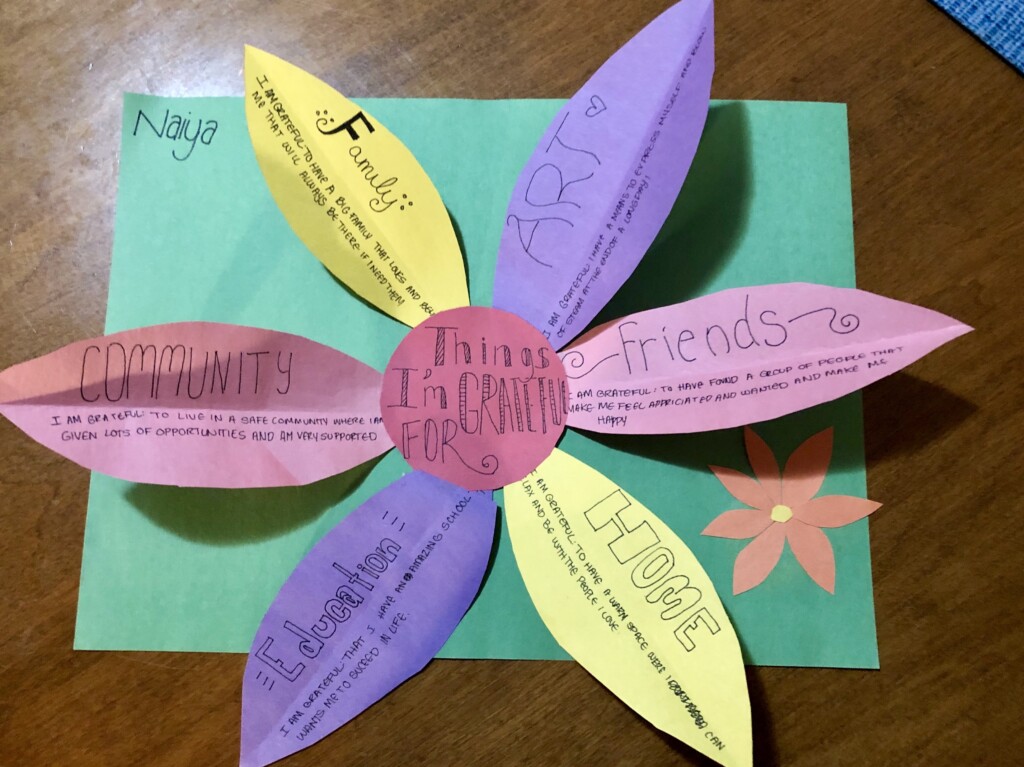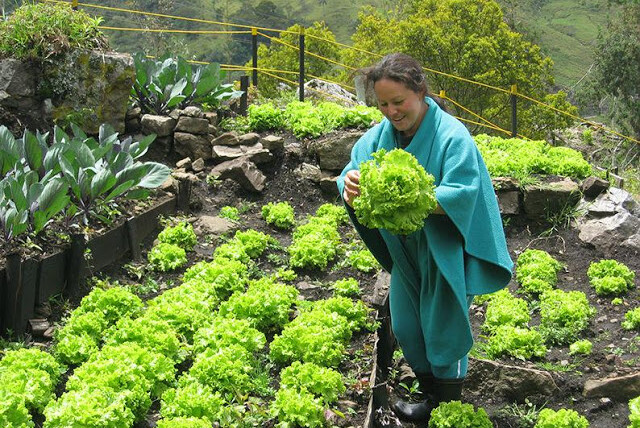The health benefits of expressing gratitude are many, and some are even can surprise you.

The scientifically-validated benefits of gratitude are better understood. Through the work of leading researchers like R. Emmons and M.Seligman, we know that this virtue is more than just saying, “thank you.” it goes beyond
Gratitude journaling can increase one’s happiness. Others show that inflammation in one’s body can decrease. Each study offers insights into how a person can improve their overall health and well-being
What are the Benefits of Gratitude?
For the individual:
- increased happiness and positive mood
- more satisfaction with life
- less materialistic
- less likely to experience burnout
- better physical health
- better sleep
- less fatigue
- lower levels of cellular inflammation
- greater resiliency
- encourages the development of patience, humility, and wisdom
For groups:
- increases prosocial behaviors
- strengthens relationships
- may help employees’ effectiveness
- may increase job satisfaction
Research by Mishra (2011) explored many of the above benefits in “Why gratitude enhances well-being: What we know, what we need to know.” They concluded that there is “considerable evidence that gratitude builds social resources by strengthening relationships and promoting prosocial actions.”
Showing gratitude is not merely saying, “thank you.”
- Gratitude disconnects us from toxic, negative emotions and the ruminating that often accompanies them. Writing a letter “shifts our attention” so that our focus is on positive emotions.
- Expressing gratitude helps us even if we don’t explicitly share it with someone. We’re happier and more satisfied with life because we completed the exercise.
- The positive effects of gratitude writing compound like interest. You might not notice the benefit of a daily or weekly practice, but after several weeks and months, you will.
- A gratitude practice trains the brain to be more in tune with experiencing gratitude — a positive plus a positive, equal more positives.
There is a positive relationship between kind, helpful behavior, and feeling grateful.
- Gratitude facilitates helping behavior,
- Grateful people help the people who helped them (benefactors) and strangers similarly, and
- Reminding people who helped them (a benefactor) still increased helping behavior exhibited toward strangers. The reciprocity norm wasn’t a factor.
Gratitude allows a person to:
- celebrate the present
- block toxic emotions (envy, resentment, regret, depression)
- be more stress-resilient, and
- strengthen social ties and self-worth.
The Effects Gratitude Has on Health
According to Julie Ray (2019) of the Gallup Organization, “The world took a negative turn in 2017, with global levels of stress, worry, sadness and pain hitting new highs.” How can this trend change for the better? Research demonstrates that one way is through practicing gratitude.
- Writing a gratitude letter and counting blessings had “high utility scores and were associated with substantial improvements in optimism” (Huffman,2014).
- Gratitude letter writing leads to better mental health in adult populations seeking psychotherapy ( Gilman, 2016).
- Gratitude buffers people from stress and depression (Linley, & Joseph, 2008).
- Positive reframing underlies the relationship between trait gratitude and a sense of coherence. A sense of coherence is how confident a person feels about potential life outcomes.
- Patients who expressed optimism/gratitude two weeks after an acute coronary event had healthier hearts ( Januzzi 2015).
- Gratitude and spiritual well-being are related to positive affect, sleep quality, energy, self-efficacy, and lower cellular inflammation (Raisinghani, 2015).
- Gratitude may enhance peace of mind, reduce rumination, and have a negative effect on depressive symptoms (Liang, 2018).
when we take time to notice the things that go right – it means we’re getting a lot of little rewards throughout the day”
Every time a person expresses or receives gratitude, dopamine releases in the brain. Dopamine, a neurotransmitter, is produced in two areas of the brain, When a person expresses or receives gratitude, dopamine releases, thus making a connection between the behavior and feeling good. The more a person practices gratitude, the more often dopamine releases
Proven Advantages of Keeping a Daily Gratitude Journal.
One of the most popular gratitude exercises is the daily gratitude journal. One study found that materialism among adults decreased when they implemented this practice.
Available at my website soon.
- Build a gratitude habit (rituals, practices, etc.)
- Draw from many resources (appreciation programs, interventions, helping others, others helping us, building skills, etc.)
- Guard against negative emotions (envy, excessive pride, and anger)
Journaling

Writing down a few things you are grateful for is one of the easiest and most popular exercises available.
The purpose of the exercise is to reflect on the past day, few days, or week, and remember 3-5 things you are especially grateful for. In this way, you are focusing on all the good things that happened to you in a given set of time.
What is the appropriate amount of journaling one should do per week? Some people propose doing it every day while others suggest once per week. The arguments against doing it every day are that it can be tedious and forced. It becomes a practice you feel you should do or need to do instead of something you want to do.
If you would like to have one once they are ready please
Gratitude Jar

The gratitude jar is a stunningly simple exercise that can have profound effects on your well-being and outlook. It only requires a few ingredients: a jar (a box can also work); a ribbon, stickers, glitter, or whatever else you like to decorate the jar; paper and a pen or pencil for writing your gratitude notes; and gratitude!
Step 1: Find a jar or box.
Step 2: Decorate the jar however you wish. You can tie a ribbon around the jar’s neck, put stickers on the sides, use clear glue and glitter to make it sparkle, paint it, keep it simple, or do whatever else you can think of to make it a pleasing sight.
Step 3: This is the most important step, which will be repeated every day. Think of at least three things throughout your day that you are grateful for. It can be something as benign as a coffee at your favorite place, or as grand as the love of your significant other or dear friend. Do this every day, write down what you are grateful for on little slips of paper and fill the jar.
Over time, you will find that you have a jar full of a myriad of reasons to be thankful for what you have and enjoy the life you are living. It also will cultivate a practice of expressing thanks.
If you are ever feeling especially down and need a quick pick-me-up, take a few notes out of the jar to remind yourself of who, and what, is good in your life.
Gratitude Rock

This exercise may sound a little silly. You may be thinking, “A rock? How can a rock help me practice gratitude?”
The secret to this exercise is that the rock is a symbol, a physical object you can use, to remind yourself of what you have.
The instructions are about as simple as instructions can be: just find a rock!
Make sure to pick one you like, whether you like it because it’s pretty because it is smooth or has an interesting texture, or because you picked it up from a special place. If you have another small object you’d rather use instead, feel free to substitute that for the rock.
Carry this rock around in your pocket, leave it on your work desk where you will see it throughout your day, or even wear it on a chain around your neck or your wrist.
Whenever you see it or touch it, pause to think about at least one thing you are grateful for. Whether it’s something as small as the sun shining down on you in this moment or as large as the job that allows you to feed yourself or your family, just think of one thing that brings you joy or fulfillment.
When you take the stone out of your pocket or off of your body at the end of the day, take a moment to remember the things that you were grateful for throughout the day. When you put it on or in your pocket again in the morning, repeat this process to remember what you were grateful for yesterday.
Not only will this help you remember the things you are grateful for, but also it can trigger a mini-mindfulness moment in your day. It will bring you out of your head and into the present moment, giving you something to focus your attention on. It can also act as a switch to more positive thinking.
When you flip this switch multiple times a day, you will likely find that your average day has become much more positive.
Gratitude Tree

The gratitude tree is a great activity for children, and it can also be effective for adults who are open to experiencing a childlike sense of fun and wonder. You will need several double-sided colored sheets of paper, string or ribbon, scissors, twigs or tree branches, some stones or marbles, a vase, and a sense of gratitude.
Step 1: Make one or more leaf cutouts to use as a template for your leaves. , find another you like, or even create your own design. Trace your leaves on your colored paper using your template(s).
Step 2: Cut out the leaves, punch a hole at the top of each leaf, and loop your string or ribbon through each hole.
Step 3: Put the stones or marbles in a vase and stick the tree branch or twig in the middle.
Step 4: Have your (or your child) draw or write things that you (or your child) are grateful for on the leaves. You can also use photographs if you’d like.
Step 5: Hang the leaves from the branches, and behold your gratitude tree!
Gratitude Box

The gratitude box is a thoughtful way to share your feelings with loved ones and cultivate your own sense of gratitude.
This is another easy activity that requires only a box, some paper, and a pen or pencil to write down gratitude messages. You can make the box yourself or buy one, the prettier the better!
On the paper, write down a heartfelt message of gratitude to your loved one. If you’re not sure how to start, here are some suggestions to begin your message:
1) “Thank you for…”
2) “What I love about you…”
3) “My holiday wish for you…”
You can also collect messages from others about your loved one, to pack the box with multiple messages of gratitude and love.
Place the message(s) into the box, wrap it up or put a bow on it, and give it to your loved one as a special gift, to both your loved one and yourself.
Gratitude Reflection
Reflection is an important part of mindfulness meditation and the cultivation of a sense of self-awareness. These practices can lead to an enhanced sense of well-being, among other benefits, although enhanced well-being is enough of a benefit for most of us.
To practice gratitude reflection, follow these steps:
- Settle yourself in a relaxed posture. Take a few deep, calming breaths to relax and center. Let your awareness move to your immediate environment: all the things you can smell, taste, touch, see, hear. Say to yourself: “For this, I am grateful.”
- Next, bring to mind those people in your life to whom you are close: your friends, family, partner…. Say to yourself, “For this, I am grateful.”
- Next, turn your attention onto yourself: you are a unique individual, blessed with imagination, the ability to communicate, to learn from the past and plan for the future, to overcome any pain you may be experiencing. Say to yourself: “For this, I am grateful.”
- Finally, rest in the realization that life is a precious gift. That you have been born into a period of immense prosperity, that you have the gift of health, culture, and access to spiritual teachings. Say to yourself: “For this, I am grateful.
Gratitude Flower

The gratitude flower is similar to the gratitude tree, except that instead of creating leaves of gratitude, we create flower petals of gratitude.
Start by cutting out a circle from colored paper. Yellow is a popular color for this piece since it will be the center of the flower.
On the circle, write “Things I’m Thankful For” or write your name or family name, or even an overarching thing you’re grateful for (i.e., “my family”).
Next, use a template or freehand cut to create flower petals. You can use several different colors for a bright and vibrant flower, or the same color for a more uniform looking flower.
On the flower petals, write down things you are grateful for. These can be things like the sunny weather, having wonderful parents, or a promotion at work.
If you would like to try any of these things.. why not give it a try? If not for 10-weeks, for 2 weeks? You might be surprised with the slow and steady benefits this simple tip brings.
Things You Can Do to Realize These Benefits
- Journal about things, people, or situations for which you are grateful.
- Think about someone for whom you are grateful
- Write a gratitude letter to someone for whom you are thankful. Consider sending it or giving it to them in person.
- Meditate on gratitude (present moment awareness).
- Do the “Count Your Blessings” exercise (at the end of the day, write down three things for which you were grateful)
- Practice saying “thank you” in a real and meaningful way. Be specific. For example, “Thank you for taking the time to read this article and leave a comment.
- Write thank you notes. Some might say this is a lost art. Challenge yourself to write one hand-written note every week for one month.
- Be mindful of your five senses. How does each enhance your life?
- Create visual reminders to practice gratitude. Sticky notes, notifications, and people are great for this.
- Focus on the good that others have done on your behalf.
- Actions lead to gratitude. Smile, say thank you, and write gratitude letters.
- Be grateful gazer. Be on the lookout for opportunities to feel grateful.
- Give something up. We tend to adapt to newness; sometimes it’s a good idea to give something up so that we can increase our appreciation of it.
- Think about what your life would be like if a specific positive event wouldn’t have happened. Write all the decisions and events that would have been different in your life. For instance, what if you didn’t meet your friend etc. ? What if you didn’t get the dream job you have now?
The Naikan Reflection Exercise

The Naikan Reflection is a self-reflection method initially developed in Japan. The entire exercise takes about 10 minutes to complete. Naikan means “looking within.” Anyone, with or without religious affiliations, can do this activity. The process involves reflecting on the following three questions while focusing one’s attention on a particular person and time.
- What did this person give to me? (giving)
- What did I return to this person? (receiving)
- What trouble did I cause this person? (hurting)
Doing this reflection helps to grow feelings of gratitude and appreciation for others. It also allows people to discover how much they take versus give in personal relationships.
CONCLUSIONS
Regardless of who you are, or the circumstances of your life, the health benefits of gratitude are undeniable.
What activities will you commit to implementing so that you can realize the health benefits of gratitude?





